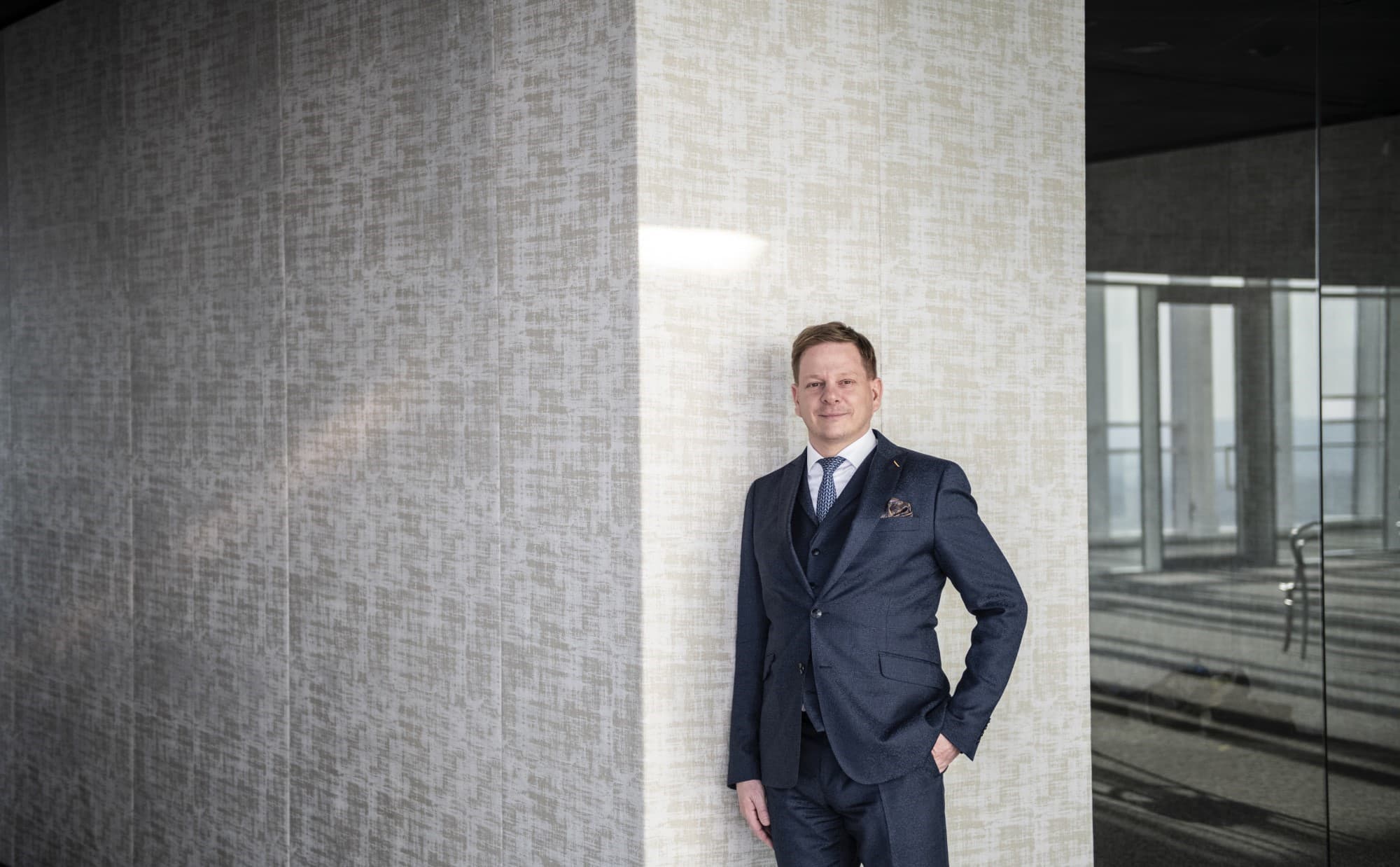People will no longer be able to afford an apartment, says the head of the Prague Chamber of Commerce.
04 \ 05 \ 2024

Lawyer Petr Michal is the chairman of the board of the Prague Chamber of Commerce. In his role, he advocates for small and medium-sized entrepreneurs, whom he says he wants the state to support. In an interview with PrahaIN.cz, he discussed the current economic situation in Prague. “The metropolis, like the entire Czech Republic, was recently hit by a significant energy crisis. It shook up energy prices and at the same time revealed how difficult it is to keep electricity and heating prices balanced,” Michal said. Other topics we discussed included transportation and the situation on the housing market.
You have been the head of the Prague Chamber of Commerce (HK) since September 2021. You recently received a mandate for another three years. What have you accomplished during your time at the chamber, and what are your plans?
My goal has been, and will continue to be, to unify the policy of the Chamber of Commerce across the territory of the capital city of Prague. Over the past year and a half, we have stirred up debate across important sectors, discussing with politicians and experts topics such as transportation, housing availability, the quality of public transit, and the construction of parking spaces. From this, it became clear that the topics we have chosen are important and resonate in public life. For the coming years, we are taking on the additional task of being a partner in the implementation of key projects and standing alongside all our members, whose interests are our top priority.
And what exactly does the Chamber of Commerce focus on?
We want and must support small and medium-sized entrepreneurs, defend their interests, and provide them with all forms of assistance. The Chamber primarily offers its services to its members as well as other entrepreneurs throughout the Czech Republic, regardless of the sector their companies operate in. We are here to help entrepreneurs navigate new trends and regulations such as ESG, GDPR, etc. All these new areas significantly impact the lives of entrepreneurs, and we want to stand by them and say, “We will defend your interests so that your voice or business plans do not go unheard.”
The current economic situation is far from ideal. What does it look like in Prague? Are you seeing any savings?
The metropolis, like the entire Czech Republic, was recently hit by a significant energy crisis. It shook energy prices and also revealed how difficult it is to keep electricity and heating prices balanced. In connection with the crisis, households have started saving. The Prague Chamber of Commerce is currently investigating how the residents of the metropolis are responding to the current energy situation. In cooperation with the STEM/MARK agency, we conducted a very interesting survey. Among other things, we focused on energy-saving measures and found that the savings preferred by Prague residents include modernization of street lighting, lowering indoor temperatures, and/or installing energy-saving light bulbs.
The housing market situation in Prague has also changed significantly over the past year. Some say developers are limiting and will continue to limit their projects. Is this true?
The so-called “scissors” have opened wide, to the point where people simply cannot afford apartments anymore, or will not be able to. Prices are truly astronomical, so it is clear that those who build apartments and houses must react to the supply and demand developments. When the possibilities of Czech residents diverge so sharply from the prices of new and older housing, it is evident that a completely different housing model is gaining importance—namely rentals.
To have more rental apartments available, it is first necessary to unlock a significant amount of municipal land. On these plots, rental housing can be built in cooperation between the city and private investors, with the city retaining some apartments for so-called affordable housing or for preferred professions. This model is much more viable for Prague than building extensive portfolios of city-owned buildings, which the city administration will not have the funds to manage for decades. Moreover, the city cannot build rental apartments as quickly as private developers.
Could it happen that when the economic situation improves, the shortage of apartments will become even worse? And prices will shoot up again? Does the Chamber address these topics?
That is naturally a question of supply and demand. But if there is a shortage of something, it is almost certain from basic economic principles that the price of the scarce and sought-after item will rise sharply. The Prague Chamber of Commerce is not an executive authority; our role is to moderate or initiate discussions and seek solutions to unblock the situation effectively. That is exactly what we are trying to do. Last year, we organized a series of expert events, and one of the main topics was housing. Based on the survey, we identified the pressing problems in the capital: shortage of apartments and houses, and rising prices. Thus, the housing problems remain unchanged; it is a long-standing issue that we are aware of and want to address with key stakeholders.
Do you also work with the city administration on transportation in Prague? After all, many people commute to the capital from Central Bohemia; in recent years, delivery services have increased in the city, and the number of resident cars is rising. Is it even possible to balance this situation so that not only Prague residents but also entrepreneurs are satisfied?
Transportation is, of course, another area troubling not only Prague residents. You correctly pointed out that many people from Central Bohemia—and beyond—commute to the capital. Prague is a strategic transportation hub through which traffic from the north and east of the Czech Republic passes on the way west. There simply are no other faster routes; you have to go around Prague. Not to mention the blocked traffic in the city center. We are in a situation where we must think about completing several projects simultaneously. When we recently addressed this situation with politicians and experts, we found that the most pressing problem remains the unfinished construction of some remaining parts of both the inner and outer ring roads. Not only the Prague Ring Road but also the City Ring Road are used not only by Prague residents but also by people from across the country, so it is necessary that the state participates in financing both projects. Politicians should also consider the effectiveness of various traffic measures, including pedestrian zones. The city is partially becoming a virtual environment because of this. Let’s regulate traffic through the center once sufficient alternatives, primarily the mentioned City Ring Road, are in place. This will help everyone.
Published on the PrahaIn.cz website on April 27, 2023.
Author: Bára Richterová




